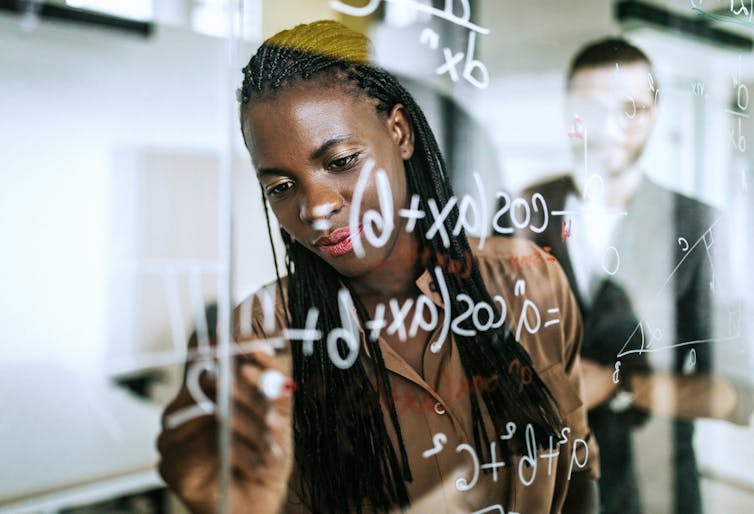
Peter C. Cormas, California University of Pennsylvania
The Research Brief is a short take about interesting academic work.
The big idea
I found that college students who are taking courses to become teachers can change their beliefs of how science and mathematics should be taught to and learned by K-12 students.
Most of these future teachers tell me when they start my course, they believe that K-12 students must memorize science and mathematics knowledge to learn it. They also believe that students cannot acquire knowledge through a process used by scientists and mathematicians called problem-solving. Problem-solving asks students to solve engaging and challenging problems that are provided without a strategy or solution. It also involves group work and a time to present and justify their strategies and solutions to the class.
To challenge my students’ beliefs, I ask future teachers to teach science and mathematics to students with problem-solving. At first they often resist because they believe that their students can only memorize science and mathematics knowledge. However, after they have asked the students to use problem-solving and find it successful, they discover that students can learn like scientists and mathematicians The evidence and experiences start to change their beliefs.
The way I reached these conclusions was by studying future teachers over the course of four years. I studied 113 future teachers’ beliefs in 10 sections of a course that I taught on how to teach science and mathematics. Throughout the course, I asked the future teachers to discover science and mathematics knowledge with problem-solving. I also had the future teachers teach students at a local school by asking them to learn with problem-solving.
To measure changes in future teachers’ beliefs following completion of the class, I asked them to complete a survey at the start and end of the course. At the end, the findings showed that the future teachers were significantly more likely to teach in a way that reflected how scientists and mathematicians solve problems.
It also appeared that their teaching of science with problem-solving encouraged their use of the method when they taught mathematics. Conversely, their teaching of mathematics with problem-solving encouraged their use of the method when they taught science.
Why it matters
This study matters because a teacher’s beliefs – their personal philosophy about teaching and learning – often determine how they will teach and what students will learn. And because problem-solving is necessary for scientific and mathematical literacy, students need teachers who will expose them to problem-solving.
This study also matters because college professors who work with future teachers can employ similar strategies. They can place future educators in situations in which they must confront their beliefs about teaching and learning with evidence and experiences that contradict their beliefs.
What other research is being done?
Those who do similar research are trying to figure out how to assure future teachers use problem-solving in their future classrooms. I have taught many education students who did quite well in my course, and successfully used science and mathematics problem-solving with their students. However, former students that I ran into years later often told me that they do not use problem-solving as teachers. Instead, they reverted to simply asking students to memorize science and mathematics information. They told me the reason for this is that teachers in their present schools do not use problem-solving. I find this troubling.
What’s next
It may be that one way to solidify beliefs about teaching through problem-solving instead of memorization would be for science and mathematics faculty to use problem-solving in their college classrooms. Research shows that similarities and coherence between college courses may increase the likelihood that future teachers will believe in the value of problem-solving. If so, then my students may become less likely to abandon the methods learned in their courses. In turn, they may be more likely to help make their future students more adept at mathematics and science.
[Deep knowledge, daily. Sign up for The Conversation’s newsletter.]![]()
Peter C. Cormas, Associate Professor of Science Education, California University of Pennsylvania
This article is republished from The Conversation under a Creative Commons license. Read the original article.
The views and opinions expressed in the article are solely those of their authors, and do not necessarily reflect the opinions and beliefs of AcademicWomen.com.
